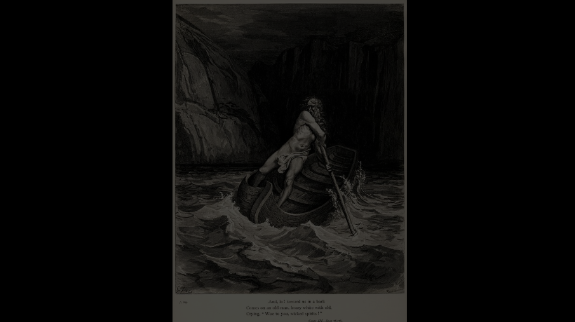The Truth Of The U.S. Constitution By Jefferson Davis
Written by AJ Baalman on April 28, 2024
Support Our Immediate Need For Equipment
Support Our Server Upgrade
MONTGOMERY, April 29, 1861.
Gentlemen of the Congress: It is my pleasing duty to announce to you that the Constitution framed for the establishment of a permanent Government for the Confederate States has been ratified by conventions in each of those States to which it was re-ferred. To inaugurate the Government in its full proportions and upon its own substantial basis of the popular will, it only remains that elections should be held for the designation of the officers to administer it. There is every reason to believe that at no distant day other States, identified in political principles and community of interests with those which you represent, will join this Confederacy, giving to its typical constellation increased splendor, to its Government of free, equal, and sovereign States a wider sphere of usefulness, and to the friends of constitutional liberty a greater security for its harmonious and perpetual existence. It was not, however, for the purpose of making this announcement that I have deemed it my duty to convoke you at an earlier day than that fixed by yourselves for your meeting. The declaration of war made against this Confederacy by Abraham Lincoln, the President of the United States, in his proclamation issued on the 15th day of the present month, rendered it necessary, in my judgment, that you should convene at the earliest practicable moment to devise the measures necessary for the defense of the country. The occasion is indeed an extraordinary one. It justifies me in a brief review of the relations heretofore existing between us and the States which now unite in warfare against us and in a succinct statement of the events which have resulted in this warfare, to the end that mankind may pass intelligent and impartial judgment on its motives and objects. During the war waged against Great Britain by her colonies on this continent a common danger impelled them to a close alliance and to the formation of a Confederation, by the terms of which the colonies, styling themselves States, entered “severally into a firm league of friendship with each other for their common defense, the security of their liberties, and their mutual and general welfare, binding themselves to assist each other against all force offered to or attacks made upon them, or any of them, on account of religion, sovereignty, trade, or any other pretense whatever.“ In order to guard against any misconstruction of their compact, the several States made explicit declaration in a distinct article – that “each State retains its Sovereignty, freedom, and – independence, and every power, jurisdiction and right which is not by this Confederation expressly delegated to the United States in Congress assembled.”
Under this contract of alliance, the war of the Revolution was successfully waged, and resulted in the treaty of peace with Great Britain in 1783, by the terms of which the several States were each by name recognized to be independent. The Articles of Confederation contained a clause whereby all alterations were prohibited unless confirmed by the Legislatures of every State after being agreed to by the Congress; and in obedience to this provision, under the resolution of Congress of the 21st of February, 1787, the several States appointed delegates who attended a convention “for the sole and express purpose of revising the Articles of Confederation and reporting to Congress and the several Legislatures such alterations and provisions therein as shall, when agreed to in Congress and confirmed by the States, render the Federal Constitution adequate to the exigencies of Government and the preservation of the Union.” It was by the delegates chosen by the several States under the resolution just quoted that – the Constitution of the United States was framed in 1787 and submitted to the several States for ratification, as shown by the seventh article, which is in these words: “The ratification of the conventions of nine States shall be sufficient for the establishment of this Constitution between the States so ratifying the same.” I have italicized certain words in the quotations just made for the purpose of attracting attention to the singular and marked caution with which the States endeavored in every possible form to exclude the idea that the separate and independent sovereignty of each State was merged into one common government and nation, and the earnest desire they evinced to impress in the Constitution its true character – that of a compact between independent States. The Constitution of 1787, having, however, omitted the clause already recited from the Articles of Confederation, which provided in explicit terms that each State retained its sovereignty and independence, some alarm was felt in the States, when invited to ratify the Constitution, lest this omission should be construed into an abandonment of their cherished principle, and they refused to be satisfied until amendments were added to the Constitution placing beyond any pretense of doubt the reservation by the States of all their sovereign rights and powers not expressly delegated to the United States by the Constitution. Strange, indeed, must it appear to the impartial observer, but it is none the less true that all these carefully worded clauses proved unavailing to prevent the rise and growth in the Northern States of a political school which has persistently claimed that the government thus formed was not a compact between States, but was in effect a national government, set up above and over the States. An organization created by the States to secure the blessings of liberty and independence against foreign aggression, has been gradually perverted into a machine for their control in their domestic affairs. The creature has been exalted above its creators; the principals have been made subordinate to the agent appointed by themselves. The people of the Southern States, whose almost exclusive occupation was agriculture, early perceived a tendency in the Northern States to render the common government subservient to their own purposes by imposing burdens on commerce as a protection to their manufacturing and shipping interests. Long and angry controversies grew out of these attempts, often successful, to benefit one section of the country at the expense of the other. And the danger of disruption arising from this cause was enhanced by the fact that the Northern population was increasing, by immigration and other causes, in a greater ratio than the population of the South. By degrees, as the Northern States gained preponderance in the National Congress, self-interest taught their people to yield ready assent to any plausible advocacy of their right as a majority to govern the minority without control. They learned to listen with impatience to the suggestion of any constitutional impediment to the exercise of their will, and so utterly have the principles of the Constitution been corrupted in the Northern mind that, in the inaugural address delivered by President Lincoln in March last, he asserts as an axiom, which he plainly deems to be undeniable, of constitutional authority, that the theory of the Constitution requires that in all cases the majority shall govern; and in another memorable instance the same Chief Magistrate did not hesitate to liken the relations between a State and the United States to those which exist between a county and the State in which it is situated and by which it was created. This is the lamentable and fundamental error on which rests the policy that has culminated in his declaration of war against these Confederate States. In addition to the long-continued and deep-seated resentment felt by the Southern States at the persistent abuse of the powers they had delegated to the Congress, for the purpose of enriching the manufacturing and shipping classes of the North at the expense of the South, there has existed for nearly half a century another subject of discord, involving interests of such transcendent magnitude as at all times to create the apprehension in the minds of many devoted lovers of the Union that its permanence was impossible.”
Feel Free To Read The Rest: Confederate States of America – Message to Congress April 29, 1861 (Ratification of the Constitution)
More Information
Restoring America To Her True Form Of Government
Views: 5






